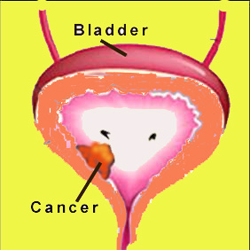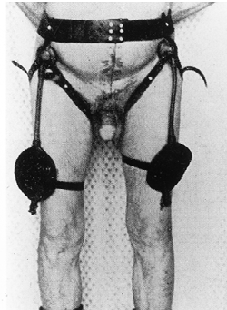TOTAL CYSTECTOMY SURGERY

Cystectomy is surgical removal of all or part of the urinary bladder. Total Cystectomy, also known as Radical Cystectomy is surgical is the removal of the entire bladder, nearby lymph nodes (lymphadenectomy), part of the urethra, and nearby organs that may have been invaded by the cancer cells. In men, the nearby organs that are removed are the prostate, the seminal vesicles, and part of the vas deferens. In women, the cervix, the uterus, the ovaries, the fallopian tubes, and part of the vagina are also removed. The ureters are disconnected from the bladder and urinary diversion is created.
Definition
Cystectomy is a surgical procedure to remove the bladder.
Purpose Surgery in india
Cystectomy is performed to treat cancer of the bladder. Radiation and chemotherapy are also used to treat bladder cancer. Surgery is used to remove cancer when it is in the muscle of the bladder.
Precautions Surgery in india
Cystectomy is an aggressive treatment that may not be appropriate for patients with superficial tumors that respond to more conservative treatment.

Description Surgery in india
Cystectomy is a major surgical operation. The patient is placed under general anesthesia. An incision is made across the lower abdomen. The ureters are located, tied and cut. The ureters connect the kidneys to the bladder. Cutting them frees the bladder for removal. The bladder and associated organs are removed. In men the prostate is removed with the bladder. In women, the uterus, fallopian tubes, ovaries, and part of the vagina are removed with the bladder. The bladder collects urine from the kidneys for excretion at a later time. Since the bladder is removed, a new method must be created to remove the urine.
A small piece of the small intestine is removed, cleaned, and tied at one end to form a tube. The other end is used to form a stoma, an opening through the abdominal wall to the outside. The ureters are then connected to the tube. Urine produced by the kidneys now flows down the ureters, into the tube, and through the stoma. The patient wears a bag to collect the urine.
How do I prepare for Total Cystectomy ?
Your surgical team will provide you with instructions about the care of the urostomy opening and the bag. Routine blood and urine analysis, CT of abdomen and chest x-ray will be requested by your physician on your pre-oparative consult. Inform your physician about your other health conditions and medications (including all the prescription, non-prescription medications, nutritional supplements i.e. vitamins, minerals and herbal products). Refrain from taking aspirin or Ibuprofen at least 2 weeks before Total Cystectomy.
Stop smoking a few weeks before Total Cystectomy to prevent healing problems during recovery period. Do not eat or drink anything for at least 10 hours before the Total Cystectomy surgery. You will be instructed to be hospitalized the night before the surgery. You may be given an enema the night before to cleanse your bowel.
Aftercare Surgery in india
After the operation, the patient is given fluidbased nutrition until the intestines being to function normally again. Antibiotics are given to prevent infection of the incision sites. The nature of the organs removed mean that there will be major lifestyle changes for the person undergoing the operation. Men will become impotent because nerves controlling penile erection are cut during removal of the bladder. In women, infertility is a consequence because the ovaries and uterus are removed. However, most women who undergo cystectomy are postmenopausal and past their childbearing years.
Both men and women are fitted with an external bag that connects to the stoma and collects the urine. The bag is generally worn around the waist under the clothing. It takes a period of adjustment to get used to wearing the bag. Because there is no bladder, urine is excreted as it is produced, essentially continuously. The stoma must be treated properly to ensure that it does not become infected or blocked. Patients must be trained to care for their stoma. Often there is a period of psychological adjustment to the major change in life style created by the stoma and bag. Patients should be prepared for this by discussion with their physician.
Risks
As with any major surgery, there is a risk of infection; in this case infection of the intestine is especially dangerous as it can lead to peritonitis (inflammation of the membrane lining the abdomen).














